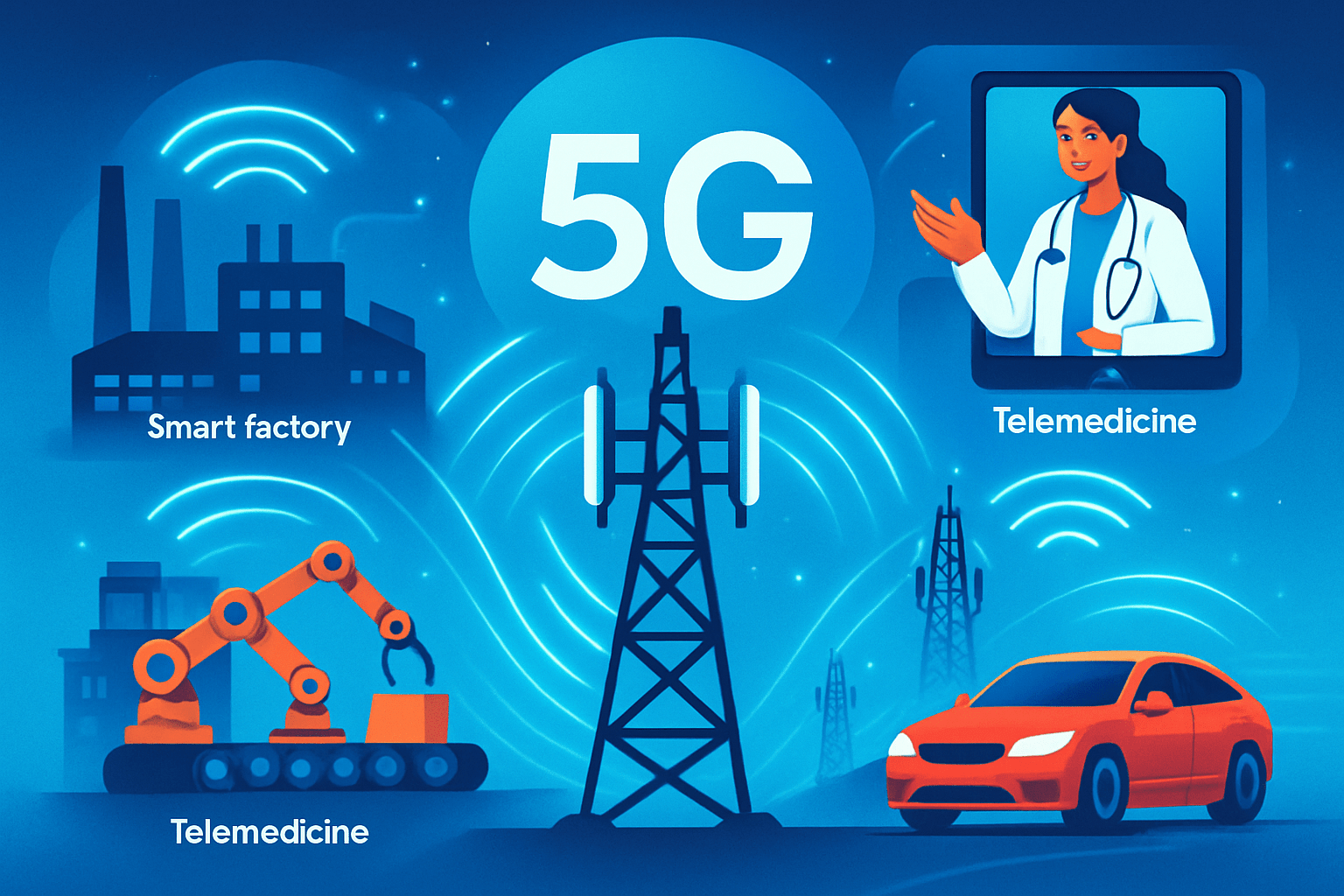
WASHINGTON D.C., USA
The new generation of advanced 5G networks is finally beginning to deliver on its promises of digital transformation, with large-scale deployments and emerging commercial use cases across various sectors. After years of anticipation and infrastructure development, the revolutionary capabilities of this technology are now being demonstrated in real-world applications—from smart manufacturing to telemedicine and connected vehicles.
Advanced 5G networks, characterized by ultra-low latency, high connection density, and significantly higher data transmission speeds, are enabling innovations that were technically unfeasible with previous generations of wireless technology. In the industrial sector, factories are implementing flexible automation and sensor-based predictive maintenance, while the healthcare sector is exploring remote surgeries and real-time patient monitoring.
Telecom operators report that enterprise adoption is accelerating as the productivity and efficiency benefits become more apparent. “We’re finally moving beyond the proof-of-concept phase to scaled deployments that are generating measurable business value,” noted an executive from a major telecommunications company. “Organizations are discovering that 5G isn’t just a faster connection, but an enabler of new business models and revenue streams.”
The ecosystem of compatible devices is also expanding rapidly, with a growing variety of industrial equipment, medical devices, vehicles, and consumer products incorporating 5G connectivity. This is creating a virtuous cycle of adoption, where more devices encourage further investment in infrastructure, which in turn drives more innovation in devices.
Despite this progress, challenges remain. Coverage is still uneven, with urban areas receiving the bulk of early investment, while rural regions lag behind. Cybersecurity issues are also receiving increased attention, as the proliferation of connected devices expands the potential attack surface for malicious actors. Regulators are working to balance the need for innovation with adequate protections for privacy and security.
Looking ahead, the industry is already planning the next evolution of the technology. Researchers are exploring concepts for 6G networks that could offer even higher speeds and new capabilities, such as holographic communication and seamless integration with augmented and virtual reality technologies. However, the current focus remains on maximizing the potential of advanced 5G networks and ensuring their benefits are broadly distributed across the global economy.